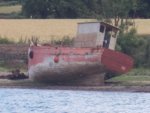bushwacka
Member
Interesting article regarding the implications of irresponsible dumping of old boats. Take home: just don't do it!
Boats: Call for rules to stop old vessels being dumped
Boats: Call for rules to stop old vessels being dumped


